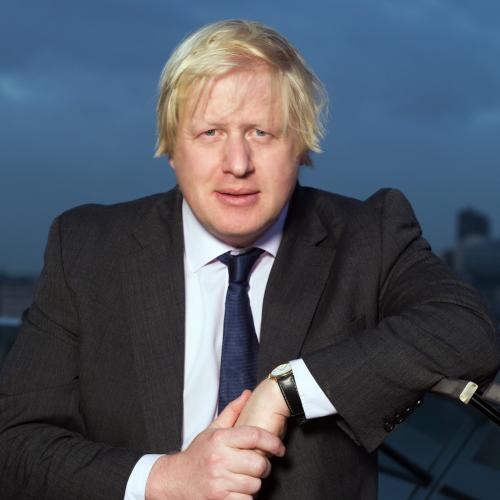Bob Stewart – 2022 Speech on the Yemen Peace Process
The speech made by Bob Stewart, the Conservative MP for Beckenham, in Westminster Hall on 3 November 2022.
It is a real pleasure to speak under your chairmanship, Mr Davies. Yemen is important to us, and I want to concentrate on why that is. The south-eastern end of the Arabian peninsula was once crucial to the functioning of the British empire. A settlement in Aden was occupied by Royal Marines in 1839. It became a bunkering port for passing ships on the way to India. After the opening of the Suez canal in 1869, Aden became vital as a staging post for ships going to and from India and the far east. When oil replaced coal as the main fuel for ships, the importance of Aden was reinforced, particularly as it is so close to the middle-eastern oil fields. Unsurprisingly, BP built a rather large facility there.
As time passed, Aden and its hinterland became a formal part of the British empire, the Aden protectorate. That was the southern bit, as my two lady friends, my hon. Friend the Member for Meon Valley (Mrs Drummond) and the right hon. Member for Walsall South (Valerie Vaz), will recall, although they were still in nappies when I was running around there—I am old, in other words. I have lost my place now.
Valerie Vaz
Yes, we have reminisced a lot together about what a lovely country it was. It was wonderful for me that there were so many different nationalities there; I was taught by Italian nuns and had Greek friends. There were people from Goa, and all sorts of other people, including of course the Arabs, with their brilliant hospitality. I am sure the hon. Gentleman will agree that we need to restore that beautiful country.
Bob Stewart
I thank the right hon. Lady, whom I call a good friend, although she is not formally meant to be a friend; technically, she is not a friend, but she really is a friend. I have been able to find my place now—thank you.
The colony of Aden consisted of 23 sultanates when we were there. There were emirates, sultanates and several independent tribes. All this was run from London and controlled by the British Government, although not completely. In the 1950s, when I was there, some tribes were in open rebellion against British authority, which led to a protracted insurrection that we all remember. Well, others might not remember it as much as I do.
In 1967, the United Kingdom had enough. Aden was given independence as South Yemen, and British forces withdrew. The Aden protectorate was renamed the People’s Republic of South Yemen. The Yemen Arab Republic was to its north—that is the division we were talking about. In 1990, north and south joined to become Yemen.
My particular interest in Yemen comes from the fact that as a child I lived there from 1953 to 1957. I was there because my father served there, like the father of my hon. Friend the Member for Meon Valley. My father was a company commander in the 1st Battalion of the Aden Protectorate Levies, charged with keeping order “up-country”, as we called it. He was always away, and I never really saw him. He was always on operations, and there was pretty fierce fighting. In 1955, he was awarded the Military Cross.
Since 1990, Yemen has gone from bad to worse. It is such a dangerous place that it would be utterly foolhardy for foreigners to go there without protection. We have already identified how poor the country is; it is actually very poor. It is the poorest country in the middle east and a very fragile state. Yemen has essentially become a cockpit where some would say the two main branches of Islam are fighting tooth and nail by proxy. The official Government of Yemen are now backed by Saudi Arabia, Jordan, Egypt, Morocco, Sudan, the Gulf states and, through them, us as their allies, and the United States. The rebels are mainly from the northern Shi’a Houthi grouping, who, I seem to recall, used to take great delight in shooting at my father in the 1950s.
Mrs Drummond
They are not Shi’a; they are Sunnis from the Zaidi part of the Sunni doctrine.
Bob Stewart
Forgive me if I got that wrong; I am perfectly willing to be corrected. To complicate the situation further, al-Qaeda has turned up. Perhaps the most dangerous of the al-Qaeda factions is in Yemen. Just to make the problem even more difficult, so-called Islamic State is present as well, or Daesh, as I might prefer to call them. That is a very rude word in Arabic, and I will not explain what it means, but frankly it is correct.
We have a responsibility here, because we drafted the original UN Security Council resolution 2216 in April 2015, which demanded that the Houthis withdraw from all their seized areas and relinquish all seized arms. We established an arms embargo against the Houthis and the forces loyal to the former president. Security Council resolution 2216 was passed unanimously. The five permanent members of the Security Council must agree it; otherwise it does not pass. In this case, four did. Russia did not, but it abstained, which under the rules allowed the resolution to pass, so it passed unopposed. United Nations action on the ground has not been very effective, but that does not stop leaders of the United Nations doing their very best to try to sort out the situation.
There remains little access to large parts of Yemen, but I am pleased that the UK provides so much aid. Are we the fourth or the second-largest provider of aid to Yemen?
Mrs Drummond
Second.
Bob Stewart
We are second. Aid must get through. We have mentioned people starving and a lack of medical supplies, but all I can remember about Aden is how little water there was there. Water is crucial—good clean water. Certainly, in the early days, some of the Saudi-led airstrikes went wrong, and they have clearly killed innocent people. However, in 2016, when I visited the Riyadh air operations centre, which controls all operations, I was impressed by the attitude of the air controllers and the coalition pilots to what ex-military people like me call weapons release. From what I saw, they were doing their very best then, and have done since, to avoid civilian casualties. Indeed, I heard real evidence that they often returned with full bomb loads. They were not positive that they would not hurt people, so they did not have weapons release.
The Gulf Co-operation Council and Saudi Arabia are very close allies of our country. We must be quite clear that, regardless of its mistakes, the Saudi-led coalition is operating under the authority of a unanimously adopted Security Council resolution. It is acting for the Security Council. It is acting for the forum of the world. It is doing the work on the ground in response to the Government of the world, if one wants to think of the United Nations like that. After all, the usurpation of power in Yemen was illegal. The Government of Yemen are a legal Government. We do well to remember that. It is far too easy for us to sit here and castigate what our allies do sometimes. The Saudi-led coalition is doing its very best to implement international law and the Security Council resolution that we, the British, drafted.
Obviously, everyone here realises that the only way ahead for Yemen is a political solution. That solution must obviously involve the United Nations. I suspect that it has to involve countries such as ourselves, other Arab countries and the United States. Perhaps, dare I suggest, it has to include Iran.
According to the United Nations, as we have heard, 150,000 people have been killed in the war in Yemen, and that does not include the 227,000 who died as a result of famine. I cannot believe that people in this world are dying because they do not have enough food. That is appalling. It is something that, as human beings, we have a real responsibility to sort out. Lack of food, kids dying—it is just dreadful. The lack of healthcare facilities just piles it on, too.
I should stop shortly, because others want to speak, but I hope that I have emphasised that we, the British, have a responsibility for action in Yemen. I know that the Foreign, Commonwealth and Development Office is acutely aware of the United Kingdom’s long-standing concern about what has happened in the country, and that the issue is not on the backburner. It is very difficult to sort this one out, but surely a world that can land a spacecraft on a flipping comet can find a way to stop Yemen going through the bloody awful hell that it is enduring.



